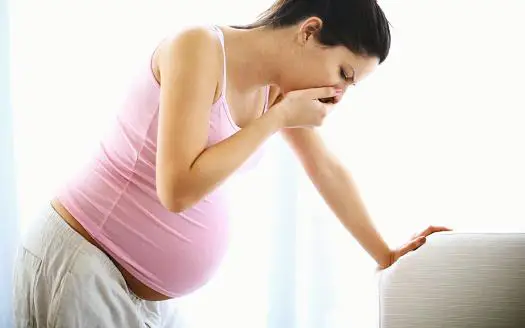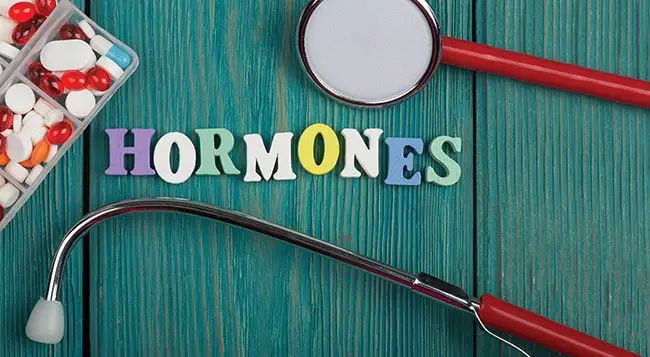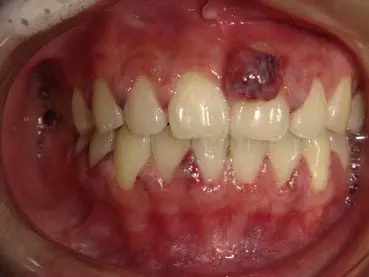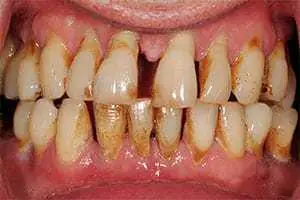Pregnancy is a life changing event for a women
Not only does it bring some big changes in your life, your body also changes significantly. Your hormones are all over the place.
The morning sickness, unexplainable cravings and the unusual bouts of crying are some of the expected changes that you must be very well aware of.
But, did you know that oral health and pregnancy are closely related?
The fluctuating hormones in pregnancy can increase the risk of developing oral health problems, and if not taken care of, may even cause pre-term deliveries.
Therefore, it’s necessary that you pay regular visits to your dentist and maintain a much healthier oral hygiene, at least till your baby is born.
Get frequent cleaning of the teeth and brush them twice a day along with regular flossing, as when your hormones are frequently fluctuating, even a little carelessness can go a long way.
And you most definitely don’t want to add up to your already constipated, nauseous and moody self!
So let’s find out what can possibly happen if you are not taking care of your oral health during pregnancy. Remember that the chances of oral diseases are 100% more prevalent in women who already have a neglected oral hygiene.
So if you are of child bearing age or are planning to have a baby, this article will show you the importance of Oral Hygiene In Pregnant Women.
Because obviously, prevention is always better than cure!
Morning Sickness And Enamel Erosion

The first symptom of pregnancy is morning sickness. Almost all women who are pregnant experience it greatly in the first trimester of their pregnancy.
Anything that can possibly reach your stomach is enough to make you nauseous. And if because of reasons like survival of yourself and the baby, you do eat, it all ends with you puking your guts out in the toilet.
But as hard as it is for the expecting woman to go about the first few months of pregnancy, it’s equally challenging to keep your teeth from getting damaged during the vomiting sessions.
This is because the morning sickness exposes the oral cavity to very high levels of gastric acid, which come in contact with the tooth’s enamel and cause erosion.
This simply means that the outer structure of the teeth, called the enamel starts becoming thin because of the acid attack. When that happens, sensitivity becomes a norm.
Therefore, pregnant women are strictly advised by the dentists to not brush their teeth immediately after vomiting as it will cause the enamel structure to become thinner.
Use a brush with soft bristles and a fluoride toothpaste. The fluoride will help keep your enamel structure intact and protect your teeth from eroding further, as well as from becoming more sensitive.
Apart from that, to keep the acid levels at bay, mix some baking soda into water and rinse your mouth after the vomit session.
In just a matter of a few weeks the nausea will finally leave you!
Baby Hormones And The Gums

The pregnancy hormones, or should I say ‘roarmones’ make you do all sorts of weird and stupid things. While they are making you enjoy pickles with peanut butter and causing you to act like a 5 year old, they can also make your gums swell, causing them to bleed.
This condition is called ‘pregnancy gingivitis’. Usually, it is more prominent in females who are already victims of gingivitis and may aggravate it during the pregnancy phase.
But even if your oral hygiene has been on point, these hormones can still make your gums bleed and make them less resistant to plaque buildup. Apart from that, swelling of the gums will also make it easier for the food particles to get stuck in places that are hard-to-reach.
Therefore it’s critical you are using a deep clean tooth paste along with a soft bristled tooth brush.
Visit your dentist more frequently and get deep scaling done at least twice during the whole pregnancy.
Flossing at least once a day is crucial, so that all the food impaction that happens because of extra swelling can be well taken care of.
Second Trimester And Pregnancy Tumors

Don’t let the word ‘tumor’ scare you, because these are just benign outgrowth of the gums. Even though they can occur at any time during pregnancy, they are most prevalent in the second trimester (4-6 months).
Now, if you are pregnant, don’t just assume that as soon as you hit the second trimester, a pregnancy tumor will appear on your gums. That’s because, they mostly occur in cases where the women are already facing pregnancy gingivitis.
The buildup of plaque and food impaction causes the gums to become irritated, and in turn causes a large red lump with deep red pinpoint markings to form near the inflamed gum tissue.
Conversely, it’s possible that a pregnancy tumor may form purely due to hormonal changes.
That being said, these tumors are no big deal. Mostly, they go away as soon as the baby is born and don’t need any treatment as they are not painful either.
But if they are interfering with eating or are present at a location that is unaesthetic, your dentist will be able to remove it for you.
Periodontitis And Preterm Births

Periodontitis is the disease of the supporting structures of the teeth and occurs due to a buildup of plaque and tartar.
It’s considered an advanced stage of gum disease.
In periodontitis, the gum starts receding, exposing the root of the tooth. In this way the teeth start losing their support and start becoming mobile, eventually leading them to fall.
Now the culprit behind this disease is the gram negative bacteria that arise from the plaque and calculus.
In pregnancy, when the gingivitis is left untreated, it leads to periodontitis overtime. As the condition worsens, which is mostly in cases where the women was already suffering from periodontal disease pre pregnancy, they start losing the firmness of their teeth.
The bacteria behind all this process have already entered the blood stream by now and are producing significant amounts of pro-inflammatory mediators which in turn activate the cells which cause inflammation.
This does not only cause further damage to the periodontium, but can also affect the distant organs.
Among these organs, the reproductive system is also included.
According to research, the periodontal pathogens can cause inflammation as well as apoptosis (programmed cell death) in the placental tissue, leading to premature birth and low birth weight, both of which are leading causes of neonatal morbidity (diseases), mortality (deaths) and developmental abnormalities.
Apart from that, getting your periodontitis treated during pregnancy will not lower the risk of preterm labour as the bacteria have already entered your blood stream.
Therefore, it’s important that you get both your gingivitis and periodontitis treated before pregnancy.
Your dentist may also prescribe you some antibiotics to lower the risk of the periodontal bacteria from reaching the blood stream any further, as well as to reduce plaque and gingivitis.
One Last Push
The two lines on that pregnancy strip call for a celebration:
Congratulations!
It’s a pretty big thing that you have achieved.
As amazing as it is, pregnancy comes with a lot of baggage.
The drastic changes in your body may leave you surprised in many ways. When you are done vomiting your guts out, you start craving for things you never even liked, and when that is gone, the bloating comes in action and when that is over, the diarrhea takes over and so on and so forth!
Now, with all of that going on, you definitely don’t want your gums to start bleeding and your teeth to fall off during these nine months.
Even though the morning sickness will most definitely cause erosion of the enamel, you can always take care of that by using fluoride rich toothpaste and regularly use baking soda-water rinses.
By the time you reach the second trimester, the chances of pregnancy tumors become pretty high.
But if you are regularly getting your scaling done and not letting the plaque buildup enough to cause gingivitis, the chances of pregnancy tumors become considerably low.
If you are still not convinced with keeping your oral hygiene intact, let me tell you that if you don’t take extra care of your teeth, the bacteria that build up on plaque and tartar will eventually cause periodontitis which is a risk factor for preterm birth and low birth weight of the baby.
And you most definitely don’t want anything to risk your baby’s health and wellness.
So take out that pregnancy planner and make a list of things you need to do to keep your oral health at its best. These include:
- Brushing your teeth twice a day with fluoride-rich toothpaste.
- Flossing everyday around the gum line so that there is no plaque or calculus.
- Using a tongue cleaner or the back of your tooth brush to clean your tongue of bacteria.
- Visiting your dentist for regular dental checkups and dental cleaning.
But while you do all that, don’t forget to make the most out of this life-changing journey.
Good luck and happy motherhood
References:
https://www.ncbi.nlm.nih.gov/pmc/articles/PMC4318095/
https://www.efp.org/for-patients/gum-disease-general-health/oral-health-pregnancy/
Newman and Carranza’s Clinical Periodontology
Oxford Handbook of Clinical Dentistry
